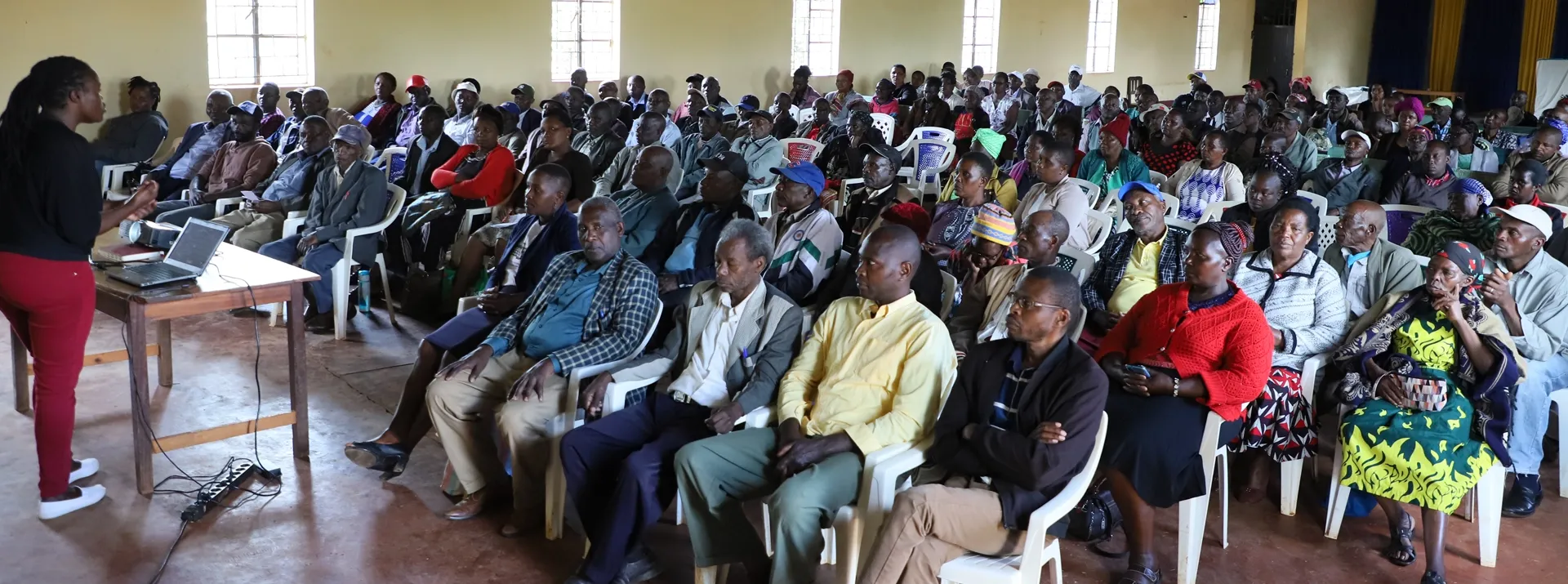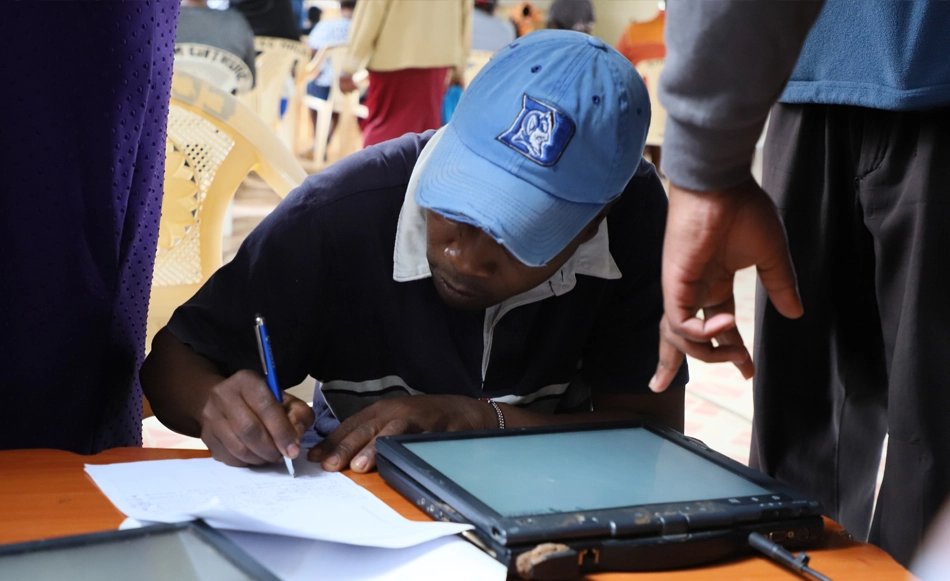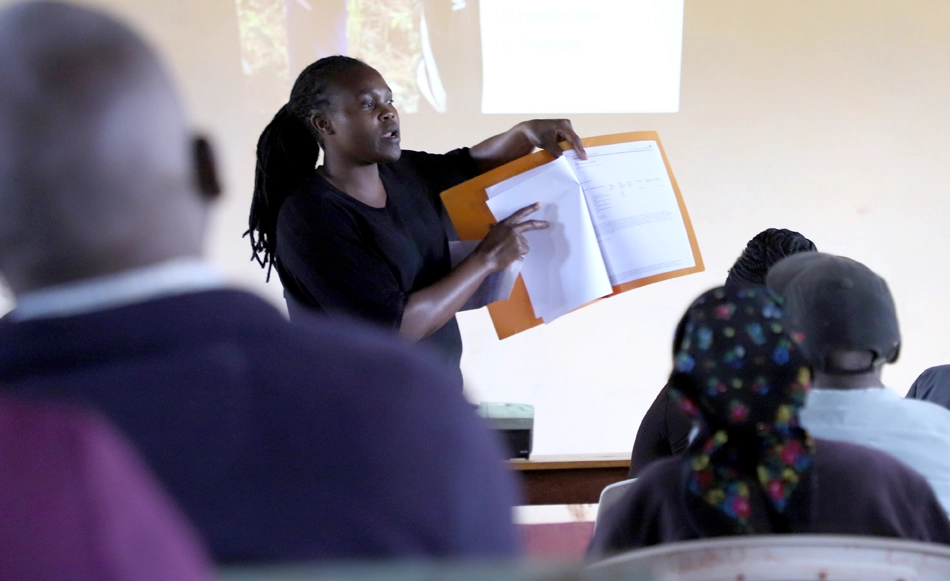Smallholder farmers trainings - Valuable knowledge

The topic of sustainability dominates the media almost daily. In agriculture, it becomes more and more important to be considerate of the natural environment and the smallholder farmers as well.
LIMBUA has been engaged in sustainable agriculture in Kenya since day one. By now, we work with more than 9,000 organically certified smallholders and offer training in order to spread knowledge and to support exchange.
What does the program look like?
Each year, we offer 30 to 40 trainings and workshops in the rural regions in Kenya. In doing so, the farmers obtain the necessary expertise for the usage of equipment and learn which machines are useful from an ecological point of view. At the same time, the list of tools and materials approved for ecological agriculture gets updated. Additionally, the farmers learn how to treat the soil considerately in order to achieve the highest possible fertility. The smallholders get trained how to handle external inspections and receive a final certification.
In our training sessions, they learn all theoretical skills to restructure their agriculture according to modern ecological principles. Afterwards, they are able to implement sustainable environmental management techniques and in addition, they improve their reputation.
We also provide a portal, which farmers in the region can use to connect with each other and with consulting staff. By that, solid relationships are built and the smallholder farmers are able to support each other. Through the cooperation with local banks, they are able to profit from financial knowledge and easy access to credits.

Digital registration via fingerscan
How does the training look like?
Our LIMBUA employees visit the Kenyan farms each year and organize a number of training sessions, which are attended by approximately 250 smallholders each. For that, we provide conference rooms, food and beverages as well as a subsidy for the round trip. All farmers participating get awarded after completion of the training.

Fieldmanagerin Mary Muli in the classroom
Why are we doing that?
As a social enterprise, LIMBUA’s focus is not only on the realization of profits. In fact, we aim to link value chains in a way that farmers, traders, processors and end customers benefit likewise. We strive for fair working conditions and wages for everyone. In order to reach these goals, it is necessary to train farmers – the origin of the value chain – accordingly.
By doing so, LIMBUA also guarantees that our products are sourced from sustainable agriculture. We don’t spend our time searching for sustainable farms but instead, we educate the farmers ourselves in order to establish standards of modern agriculture. With their information and feedback, we have the chance to permanently improve the education we offer.
Through our operation and the evolved network, we work with 9,000 smallholders by now and purchase their harvest. All 9,000 farms are organically certified, thus contributing to a better world. We receive from them macadamia nuts, avocados and mangos in organic quality, which we process in our products. It is for a reason that LIMBUA is able to present certifications such as the organic or the Fair-for-Life certificate, among others.

